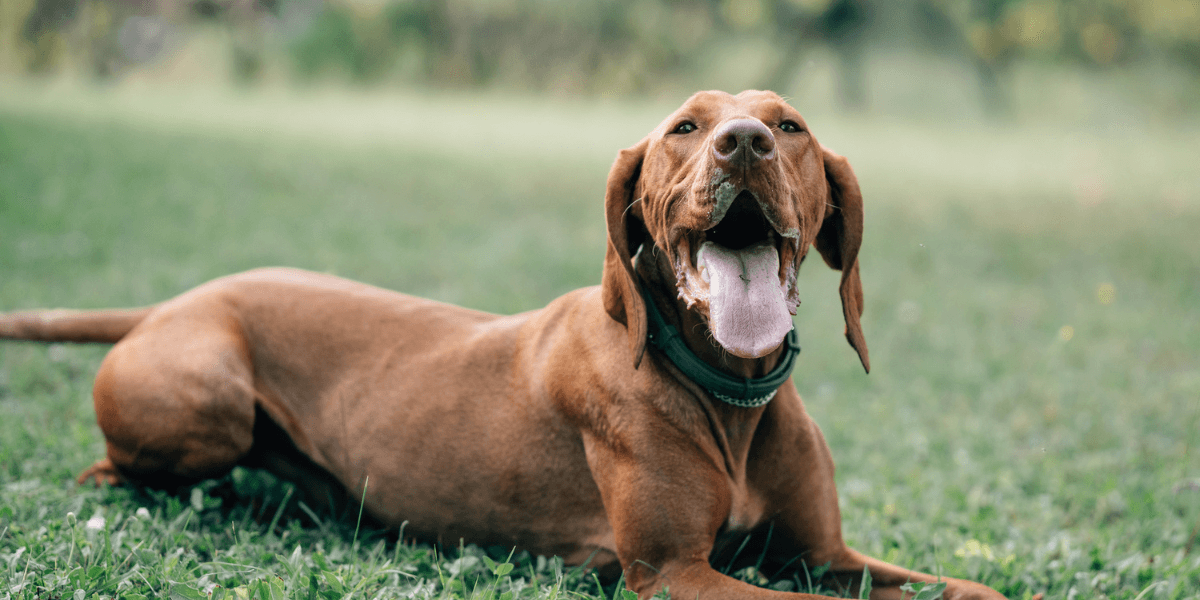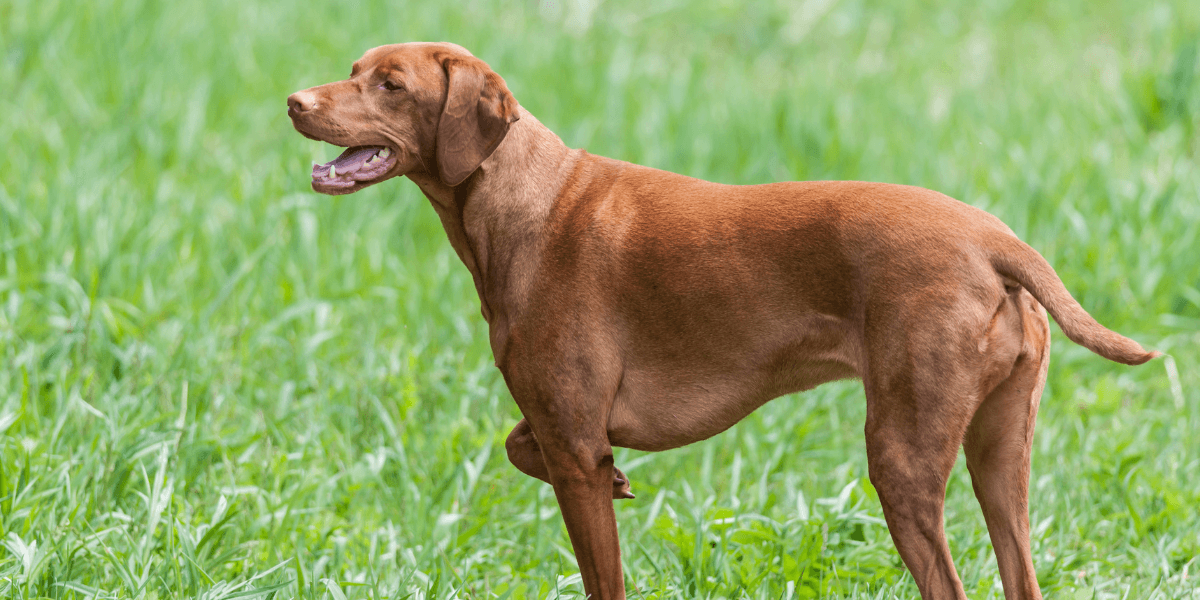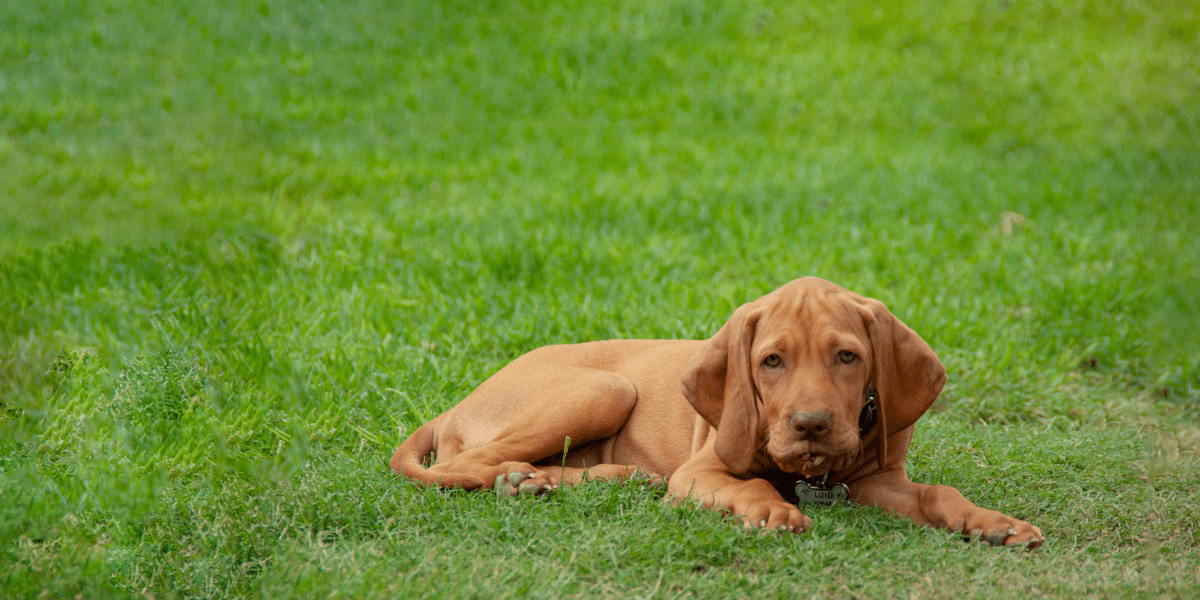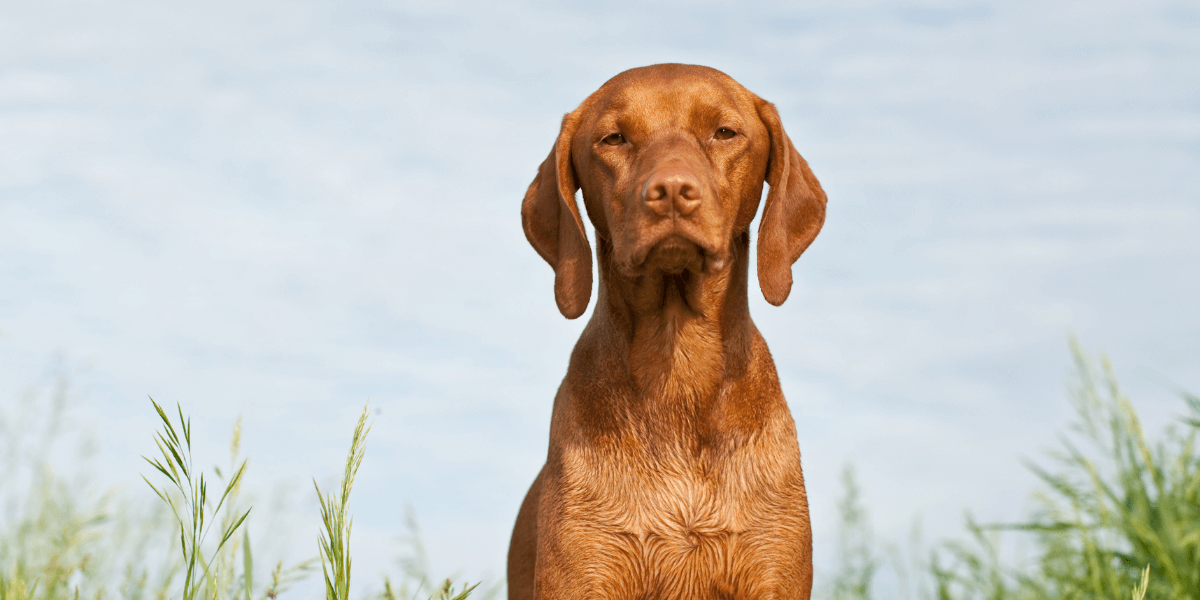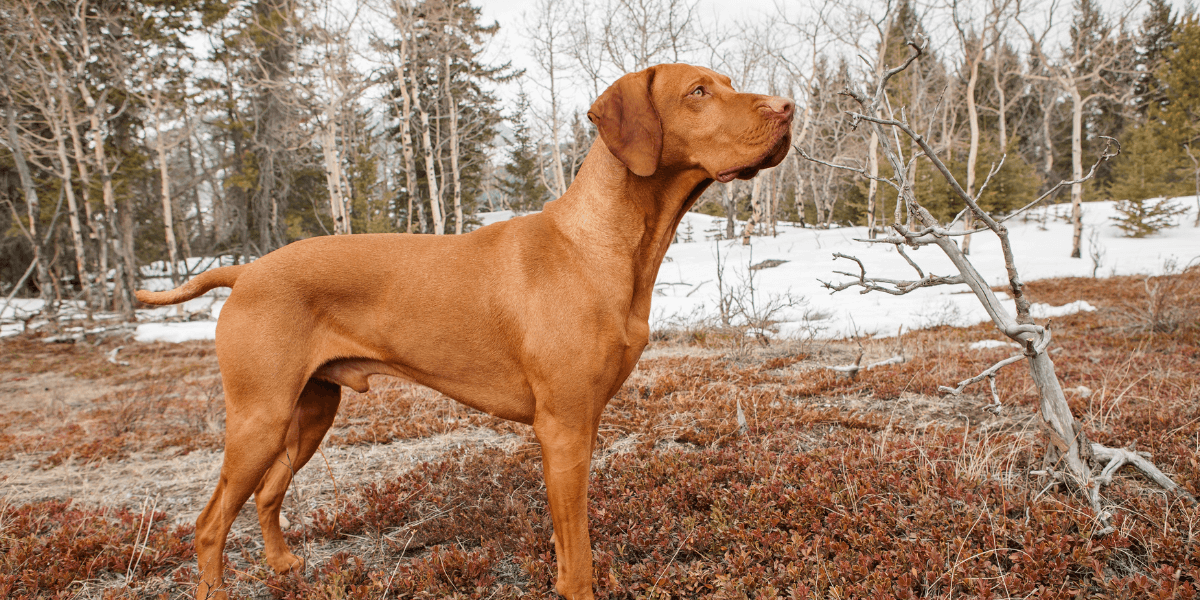Introduction
Understanding the top Health Concerns for Vizsla helps ensure their well-being
- Vizslas are known for their energetic and loving nature, but they have specific health needs
- Early identification of health issues can improve their quality of life and longevity.
- Proper care and prevention are crucial to managing common health problems in Vizslas
- Regular vet check-ups and a healthy lifestyle play a key role in preventing health issues
- This guide provides essential tips for keeping your Vizsla healthy and happy
1. Hip Dysplasia
This is a common concern in many breeds, including Vizslas.
Symptoms:
- Difficulty standing or walking
- Decreased activity
- Pain or stiffness in the hips
Prevention & Care:
- Maintain a Healthy Weight: Excess weight puts extra stress on the hips
- Vet Check-ups: Early detection through X-rays can help manage the condition
- Joint Supplements: Glucosamine and chondroitin supplements can support joint health
2. Hypothyroidism
Hypothyroidism occurs when the thyroid gland doesn't produce enough thyroid hormone.
Symptoms:
- Weight gain
- Hair loss or a dull coat
- Lethargy
Prevention & Care:
- Regular Blood Tests: Early diagnosis through blood tests is crucial.
- Medication: Daily thyroid hormone supplements can manage the condition effectively
- Monitor Symptoms: Watch for any changes in your Vizsla’s energy levels
3. Ear Infections
Vizslas have floppy ears that can trap moisture and debris, making them susceptible.
Symptoms:
- Itching or shaking of the head
- Unpleasant odor from the ears
- Redness or discharge
Prevention & Care:
- Regular Ear Cleaning: Clean your Vizsla’s ears regularly with a vet-approved ear cleaner
- Ears Thoroughly: After swimming or bathing, make sure to dry your dog’s ears thoroughly
- Veterinary Check-ups: Regular vet visits can help catch infections early
4. Skin Allergies
Skin allergies in Vizslas can result from environmental factors, food, or parasites.
Symptoms:
- Itchy or inflamed skin
- Redness or rashes
- Excessive scratching
Prevention & Care:
- Identify Triggers: Work with your vet to determine if the allergies are due to food
- Hypoallergenic Diet: Consider a hypoallergenic diet if food allergies are suspected
- Flea and Tick Prevention: Use preventive measures to avoid parasite-related allergies
Learn about common health issues in Great Danes to better understand your Vizsla's skin allergies.
5. Eye Conditions
Vizslas can suffer from various eye conditions, such as progressive retinal atrophy.
Symptoms:
- Cloudy eyes
- Difficulty seeing
- Redness or discharge
Prevention & Care:
- Regular Eye Exams: Routine vet check-ups can help detect eye issues early
- Protect Eyes from Trauma: Avoid situations where your Vizsla’s eyes could be injured
- Consider Supplements: Some supplements may support eye health
6. Gastric Dilatation-Volvulus (Bloat)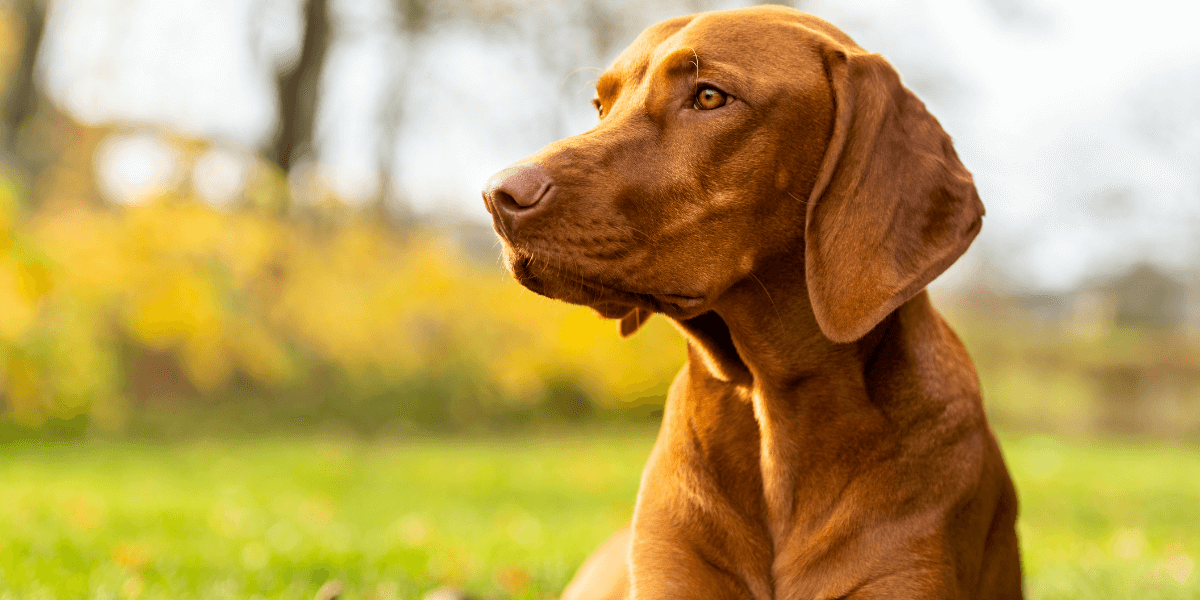
Is a life-threatening condition where the stomach fills with gas and twists.
Symptoms:
- Swollen abdomen
- Restlessness
- Rapid breathing
Prevention & Care:
- Feed Smaller Meals: Serve smaller, more frequent meals to reduce the risk
- Exercise After Meals: Wait at least an hour before exercising your Vizsla after eating
- Immediate Vet Care: Bloat requires emergency treatment
Discover the best foods and supplements for Great Danes to help prevent bloat in your Vizsla.
7. Cancer
Vizslas can develop various types of cancer, including lymphoma and hemangiosarcoma.
Symptoms:
- Unexplained lumps or bumps
- Weight loss
- Persistent coughing or vomiting
Prevention & Care:
- Vet Check-ups: Early detection through routine exams can improve treatment outcomes
- Healthy Lifestyle: Maintain a healthy diet and regular exercise to support overall health
- Monitor for Changes: Regularly check your Vizsla for any new or changing lumps
8. Dental Health Issues
Dental problems in Vizslas can lead to periodontal disease, which affects the gums.
Symptoms:
- Bad breath
- Red or swollen gums
- Difficulty eating
Prevention & Care:
- Regular Brushing: Brush your Vizsla’s teeth regularly with dog-friendly toothpaste
- Dental Check-ups: Include dental exams during your vet visits
- Chew Toys: Provide chew toys to help reduce plaque buildup
Explore grooming tips from German Shepherd experts to maintain your Vizsla's dental health.
9. Joint Problems
As Vizslas age, they may develop arthritis, which causes joint pain and stiffness.
Symptoms:
- Difficulty moving or climbing stairs
- Lethargy
- Stiffness after resting
Prevention & Care:
- Weight Management: Maintain a healthy weight to reduce joint stress
- Exercise: Regular, moderate exercise can help keep joints flexible
- Pain Relief: Consult your vet for pain management options
10. Heatstroke
Vizslas are prone to heatstroke due to their active nature and short coat.
Symptoms:
- Excessive panting
- Vomiting or diarrhea
- Collapse
Prevention & Care:
- Avoid Hot Weather: Keep your Vizsla indoors during extreme heat
- Provide Fresh Water: Always have fresh, cool water available
- Cool Down: Cool your dog gradually with cool water and seek veterinary
FAQs
1. What are common health concerns for Vizslas?
- Vizslas often face hip dysplasia, allergies, and ear infections
2. How can I prevent hip dysplasia in my Vizsla?
- Maintain a healthy weight and provide regular exercise
3. What are the symptoms of allergies in Vizslas?
- Watch for itching, redness, or ear infections
4. How can I manage ear infections in my Vizsla?
- Keep ears clean and dry; consult a vet for persistent issues
5. Are there specific diet recommendations for Vizslas?
- Yes, a balanced diet with high-quality protein and omega fatty acids
6. What are some early signs of health concerns in Vizslas?
- Monitor for changes in appetite, energy levels, and coat condition
7. Where can I find more information on Health Concerns for Vizslas?
- Refer to reputable sources and consult with your veterinarian
Conclusion
- Addressing Health Concerns for Vizsla early can prevent serious issues later on
- Regular vet visits are essential for monitoring and managing these health concerns
- A balanced diet and proper exercise contribute significantly to your Vizsla's health
- Being proactive about prevention and care ensures a long, happy life for your Vizsla
- Stay informed and consult your vet to address any emerging health issues promptly
Please share it with other Vizsla owners and leave a comment below!
References
For more information on Health Concerns for Vizsla, check:
- What are the best treatments for dog hip and joint pain?
- The Best Joint Supplements for Dogs with Hip and Joint Pain
- Vizsla Health Problems & Issues
- 6 Vizsla Health Issues To Be Aware Of (Vet Answer)
- Health Concerns for Vizsla Dog
Thank you!

